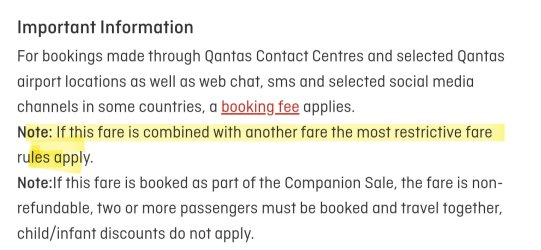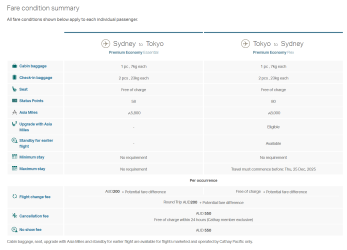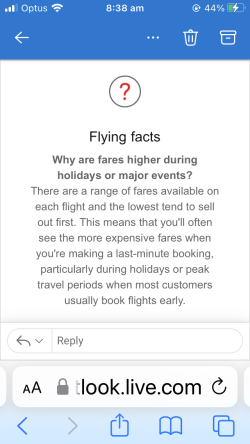Hi AFFers,
I booked a Saver (K) for the forward leg but paid extra for Flex (H) on the return.
The fare conditions for the Flex showed no change fee, but I tried to alter it and was going to be charged $125, which was the fee listed for the Saver.
I rang the call centre and they advised that the most restrictive fare conditions apply to all segments.
Is this correct, as I have lodged a complaint to ask where this is specified, as if so, it is very misleading, and there is no benefit in ever mixing up classes of fares internationally?
Keen to hear from you experts…
I booked a Saver (K) for the forward leg but paid extra for Flex (H) on the return.
The fare conditions for the Flex showed no change fee, but I tried to alter it and was going to be charged $125, which was the fee listed for the Saver.
I rang the call centre and they advised that the most restrictive fare conditions apply to all segments.
Is this correct, as I have lodged a complaint to ask where this is specified, as if so, it is very misleading, and there is no benefit in ever mixing up classes of fares internationally?
Keen to hear from you experts…

























